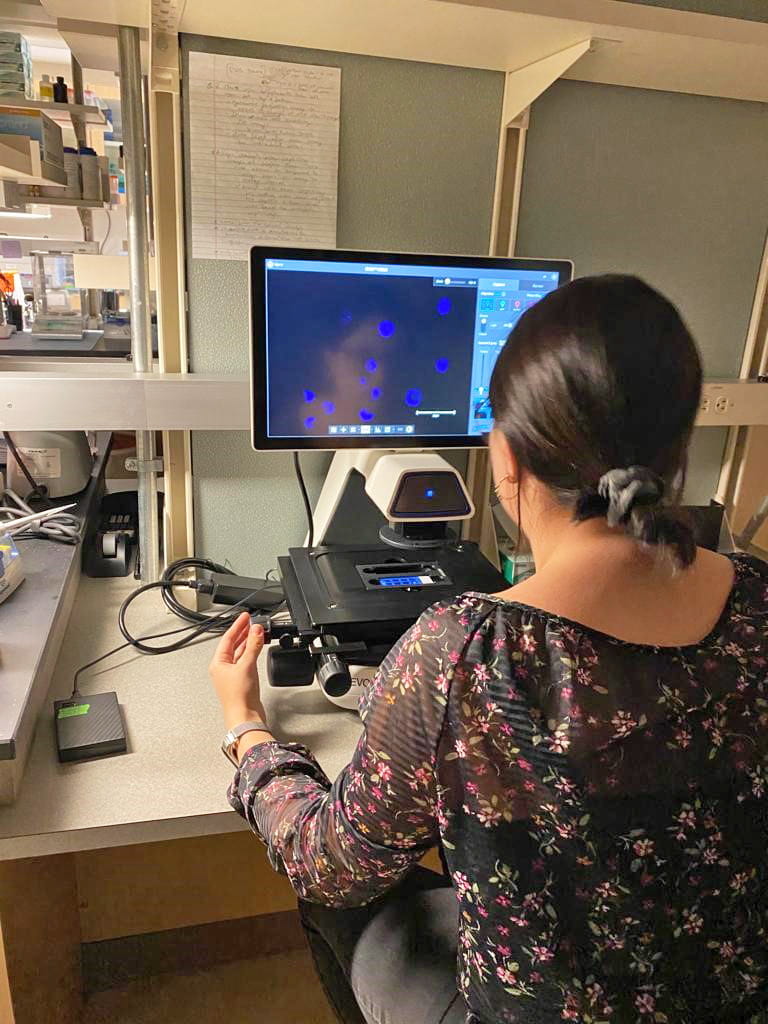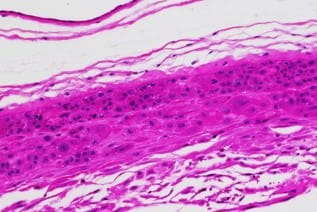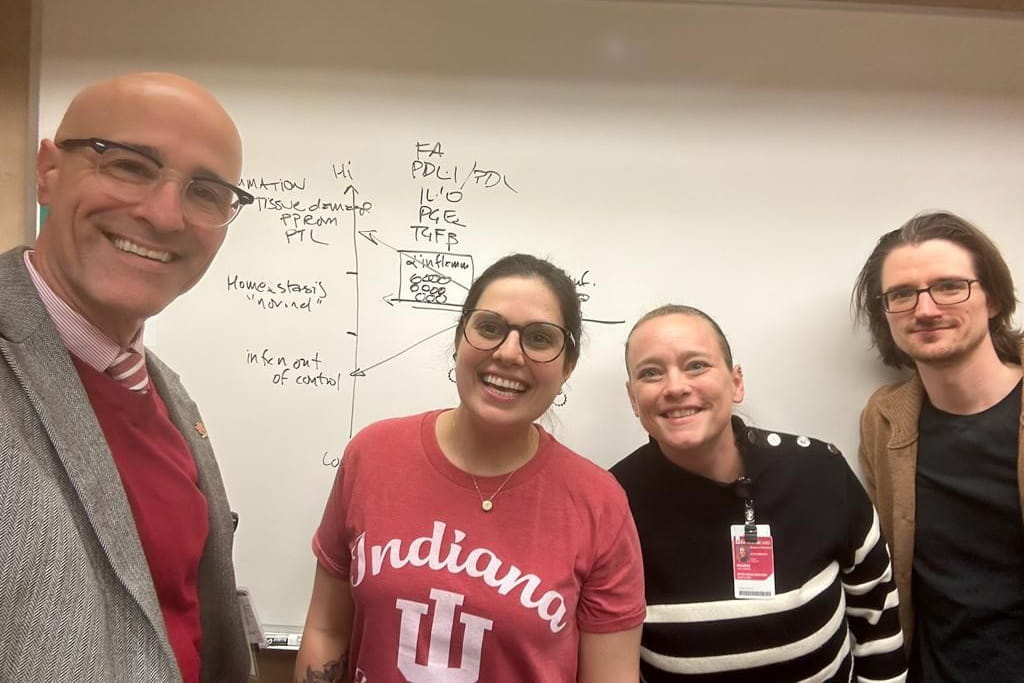The Aronoff Lab studies host-microbial interactions with an emphasis on bacterial infections and innate immunity. Our microbiology and immunology research centers primarily on the female reproductive tract, specifically at the maternal-fetal interface during pregnancy. We focus our work on the placenta and isolated innate immune cells, mainly macrophages. We are interested in fetal versus maternal macrophages and how each might contribute to protecting the fetus during infections throughout pregnancy. Some of the macrophage functions we study include:
- Receptor-mediated recognition and phagocytosis of bacteria
- Mechanisms of intracellular killing of bacteria
- The production of inflammatory mediators (e.g., cytokines, chemokines, and lipids)
Our microbiological studies focus on the Gram positive bacterium Streptococcus agalactiae (Group B Streptococcus; GBS), the bacterium that roughly 30% of women of child-bearing age carry rectovaginally and can sometimes result in pregnancy complications.
Some of the lab techniques we commonly perform include:
- RNA analysis via qRT-PCR, and scRNA methods including tissue-level spatial transcriptomics
- Protein analysis via western blotting, ELISA, multiplexing bead-arrays, and phenocycling at the tissue-level using fresh/frozen tissues
- Immunofluorescence staining and analysis on our EVOS microscope



